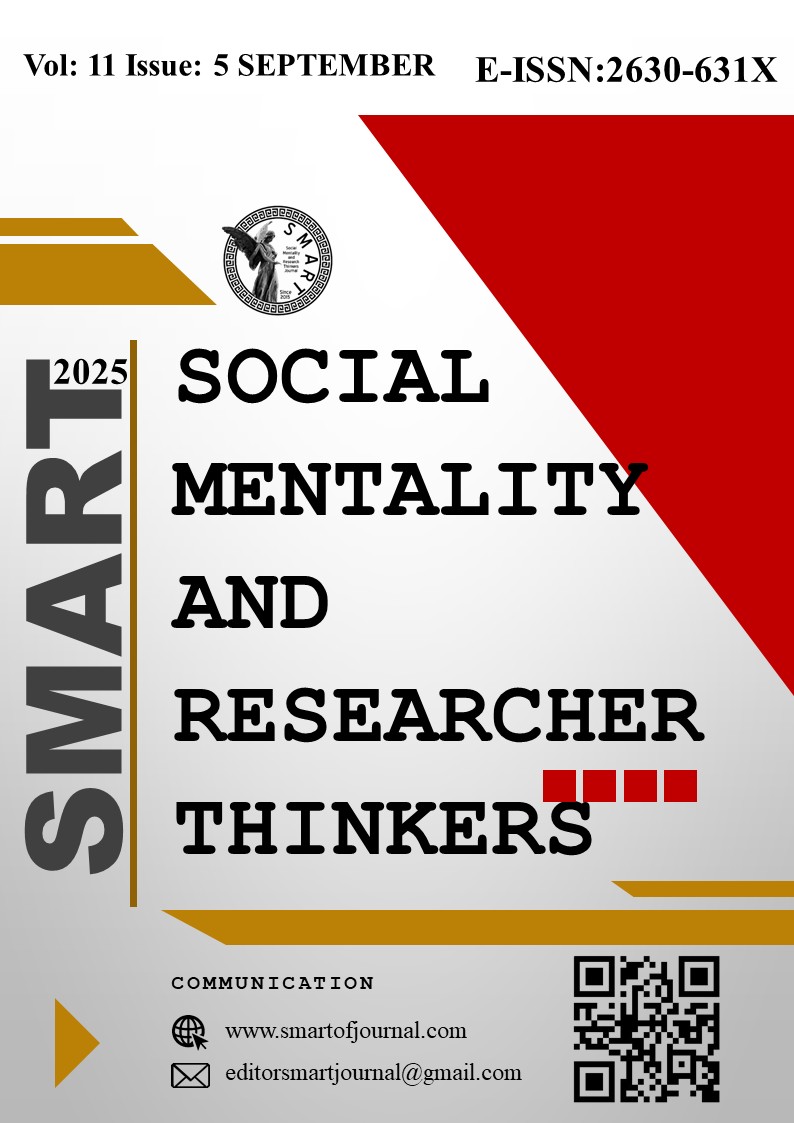Author :
Abstract
Zeydiyye mezhebi, hicrî II. yüzyılın ilk çeyreğinde Kûfe’de ortaya çıkan, Ehl-i sünnete yakınlığı ve Mutezile ile benzerliğiyle bilinen ılımlı bir Şiî fırkadır. Yemen’de VIII. asırda yaşayan Zeydî imamlarından Müeyyed-Billah Yahya b. Hamza, çok sayıda eserin müellifi olup er-Râik fi Tenzîhi’l-Hâlik adlı kitabında tenzihin esaslarını ortaya koyup ardından kendisine bununla ilgili yöneltilen sorulara cevap vermiştir. Buna göre tenzihin esasları Allah’ın cisim ve araz olmaktan münezzeh olması ile bu ikisinin gerektirdiği şeylerden münezzeh olmasıdır. Bunlar ise Allah cihet ve mekândan, bir şeye hulul etmekten veya başka şeylerin mahalli olmaktan, haz ve acı gibi duygulardan münezzehtir. Müellife tenzihle ilişkili olarak sorulan sorular ve cevapları kısaca şöyledir: “Allah nedir?” sorusu temelden yanlıştır; zira Allah’ın zâtının mahiyeti bilinemeyeceği için böyle bir sorgulama anlam taşımamaktadır. “Allah nerededir?” sorusu da anlamsızdır. Çünkü mekân ancak cisimler için geçerlidir, Allah ise mekândan ve cihetten münezzehtir. “Allah mahlûkatla iç içe midir?” sorusuna cevabı: Allah’ın zâtı yaratılmışlarla karışmaz, onlarla aynı türden değildir. Ancak “iç içe olmak”tan maksat Allah’ın mahlûkatı ilmiyle kuşatması, kudretiyle yönetmesi ise bunda herhangi bir problem yoktur; bilakis bu, O’nun yüceliğinin bir göstergesidir. Allah'a organ isnad edilemez. isnadı meselesinde de müellif açık tavır alır. Allah’a göz, kulak, el, ayak gibi organların nispet edilmesi, Mücessime ve Haşviyye’nin hatalı yorumudur. Bu tür ifadeler müteşabih ayetlerde mecazî bir edebî üslup olup, hakikatte Allah’ın organı bulunduğunu göstermez. “Allah’ın işitmesi, görmesi, konuşması nasıl gerçekleşmektedir? Bunları zâtıyla mı yoksa bir araçla mı yapar?” gibi sorular da çirkin ve yersizdir. Çünkü Allah, mahlûkatın sınırlı idrak biçimlerine bağlı değildir; O, her şeyi kendi zatıyla, hiçbir aracıya ihtiyaç duymadan idrak eder. Müellif bununla bağlantılı olarak “Allah parçalı mıdır, cihetlerle sınırlı mıdır?” tarzındaki soruları da geçersiz görür; zira parçalılık ve cihet, ancak cismaniyetin özellikleridir. Oysa Allah cisim olmadığı gibi araz da değildir. Müellife göre Allah ahirette de görülemez; çünkü görülebilmesi için bir şekil, sınır veya mekân gerekir ki bu da O’nu cisim kabul etmeyi zorunlu kılar. Ayrıca Allah’ın zulüm, yalan, hile ve benzeri kötü fiilleri işlemesi de aklen imkânsızdır; zira bu tür fiiller noksanlık ifade eder ve Allah mutlak kemal sahibidir.
Keywords
Abstract
The Zaydiyya school of thought is a moderate Shiite sect that emerged in Kufa during the first quarter of the 2nd century AH, known for its proximity to Ahl al-Sunnah and similarities with the Mu‘tazila. Among the Zaydi imams living in Yemen in the 8th century, Mu’ayyad‑Billah Yahya b. Hamza authored numerous works and, in his book ar-Rā’ik fī Tanzīh al-Khāliq, outlined the principles of tanzīh (divine transcendence) and subsequently answered questions related to it. According to him, the principles of tanzīh consist of God’s transcendence from corporeality and accidents, and from the attributes implied by these. Thus, God is free from direction and space, from incarnation or being the locus of other entities, and from sensations such as pleasure and pain. The author’s responses to questions regarding transcendence can be summarized as follows: The question “What is God?” is fundamentally incorrect, as the essence of God cannot be comprehended, rendering such inquiry meaningless. Similarly, the question “Where is God?” is meaningless because space applies only to bodies, and God is transcendent of both space and direction. In response to “Is God intertwined with creation?” he states that God’s essence does not mix with or belong to the same kind as created beings. However, if “being intertwined” refers to God encompassing creation with His knowledge and governing it with His power, then there is no problem; on the contrary, it demonstrates His exaltedness. God cannot be attributed with organs. On this matter, the author takes a clear stance: attributing eyes, ears, hands, feet, or other organs to God reflects the erroneous interpretations of the Mujassimah and Hashwiyya. Such expressions in ambiguous verses are metaphorical and literary, and do not indicate that God literally possesses organs. Questions such as “How does God hear, see, or speak? Does He do so through His essence or via an intermediary?” are also improper, since God is not confined by the limited perceptual capacities of creation; He perceives all things directly through His own essence without the need for any intermediary. In relation to this, questions like “Is God composite? Is He confined by directions?” are likewise invalid, since compositeness and directionality are properties of corporeality, and God is neither a body nor an accident. According to the author, God cannot be seen in the Hereafter, as visibility requires form, limit, or space, which would imply corporeality. Furthermore, it is logically impossible for God to commit injustice, lie, deceive, or perform similar evil acts, as such actions denote deficiency, whereas God possesses absolute perfection.





